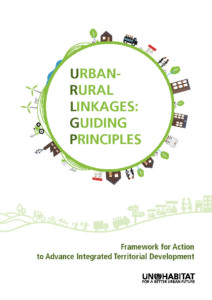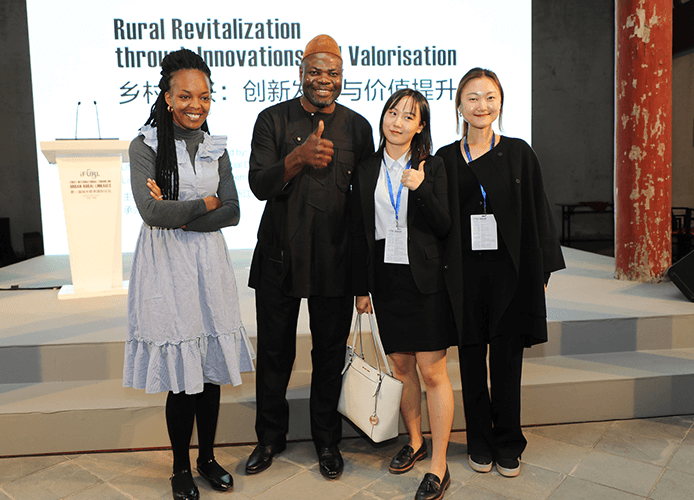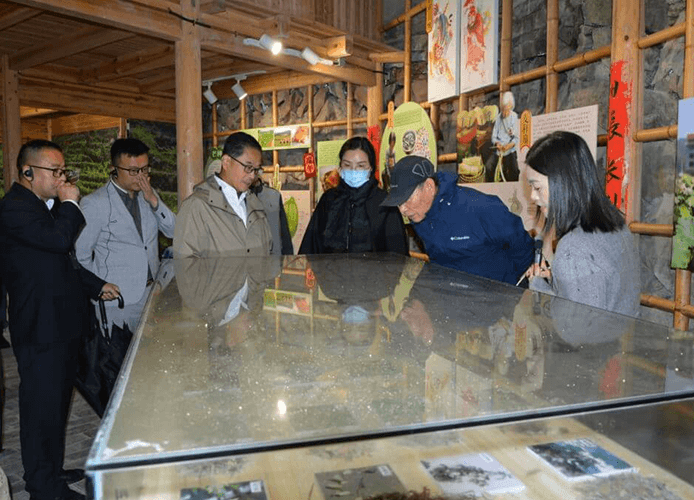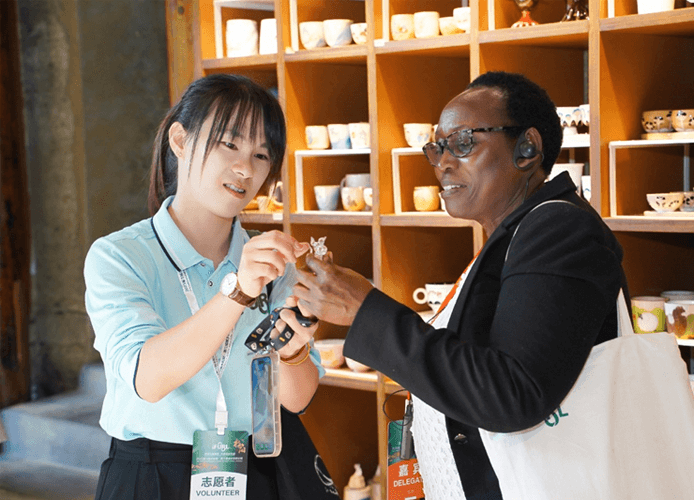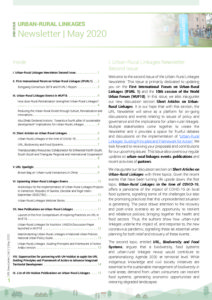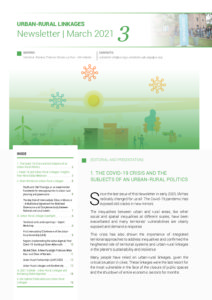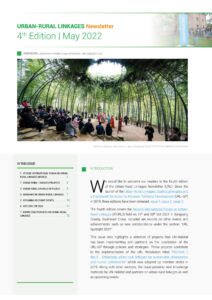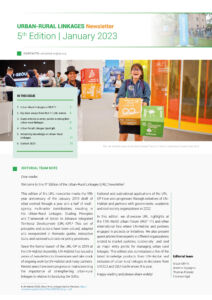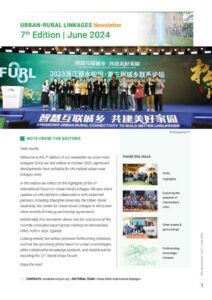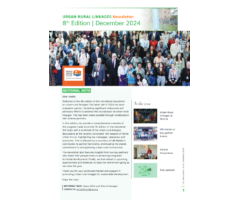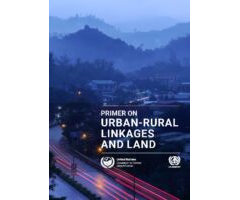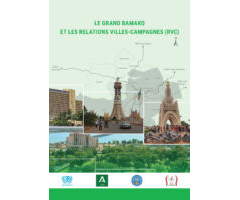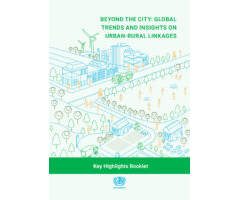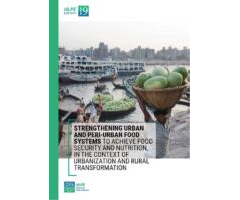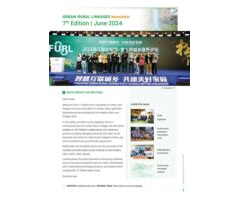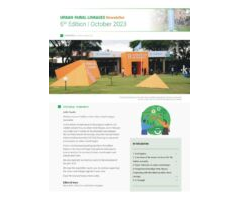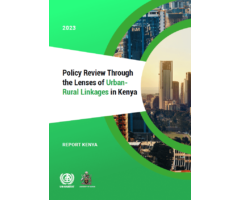
Urban-Rural Linkages touch on a broad variety of thematic areas ranging from urban and territorial planning, strengthening small and intermediate towns, from enabling spatial flows of people, products, services and information to fostering food security systems as well as touching mobility and migration, reducing the environmental impact in urban-rural convergences, developing legislation and governance structures and promoting inclusive financial investments among others. Fostering Partnerships – between urban and rural actors and areas at the local level are crucial for a transformative agenda. But also global partnerships for an integrated territorial development are crucial for transforming towards sustainable and resilient societies. Through shared principles these levels of transformation can be better aligned.

While the world, and especially Africa, is rapidly urbanizing, the development gap between rural and urban areas tends to increase. Urbanization has been widely acknowledged for its transformative power, but even though urban and rural areas depend on each other, rural areas often lag behind and worldwide, 85 per cent of the poor still live in rural areas. In both the 2030 Agenda for Sustainable Development (SDGs)1 and the New Urban Agenda (NUA)2, United Nations Member States agreed to policies that support integrated urban and territorial planning and development. They called for new, inclusive approaches and enhanced synergies between urban and rural communities and spaces – an essential component of the vision of Agenda 2030 to “leave no one behind”.
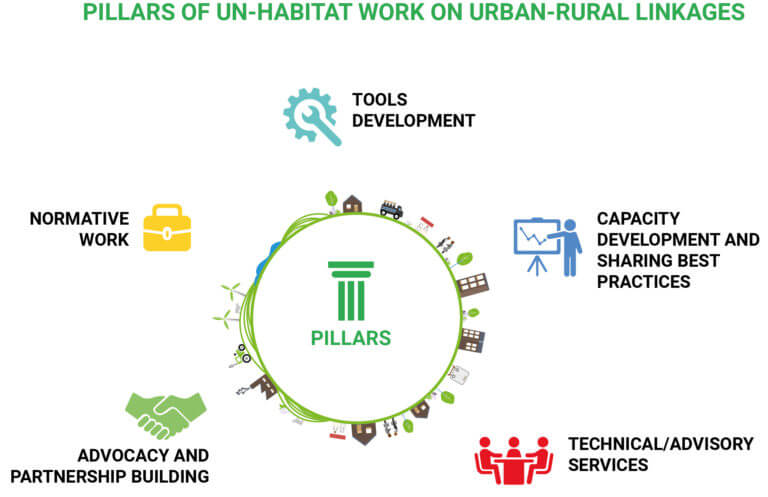
The Urban-Rural Linkages: Guiding Principles (URL-GP)
Translate global normative agendas in national and subnational commitments for territorial cohesion and action.
Locally Grounded Interventions
Incorporate the urban-rural nexus in multi-sectoral, multi-level and multi-stakeholder approaches to governance integration.
Intergrated Governance
Promote integrative, inclusive and systems-based approaches to urban and territorial policy and planning.
Functional and Spatial Systems-Based Approaches
Secure and prioritize sustainable public and private investment to balance and strengthen urban-rural linkages.
Financial Inclusive
Foster partnerships, alliances and networks that link urban and rural actors and different sectors.
Balanced Partnerships
Translate global normative agendas in national and subnational commitments for territorial cohesion and action.
Human Rights-Based
Build urban-rural linkages to recognize cultural differences, overcome conflict, and inequalities in provision of social and health services.
Do not Harm and Provide Social Protection
Protect, sustain, and expand areas important to biodiversity and ecosystem services in transition to resilient, resource efficient societies.
Environmentally Sensitive
Create spaces and mechanisms to ensure meaningful participation of people, local institutions and communities.
Participatory Engagement
Establish or improve knowledge systems and fill data gaps to address urban-rural continuum and territorial cohesion using age- gender- and spatially disaggregated data.
Data Driven and Evidence Based
This course provides an overall understanding of the significance of urban-rural linkages to sustainable urbanization and integrated territorial development. It also provides a detailed overview and methodologies of localizing the ‘URL-GP’ (Urban-Rural Linkages: Guiding Principles and Framework of Action)
The course conceived around the following premises:
- Moving away from “Learning about the URL-GP” to “Learning how to apply the URL-GP”.
- Moving away from “Learning through generic exercises/academic examples” to “Learning by doing” in a real-life project, that directly contributes to localizing the URL-GP and ultimately leads to implementation on the ground.
- Moving away from “Training of Trainers” classroom methodologies to “Self-taught and self-mentored, step-by-step and real-life learning processes”. The aim of the course is not to teach people about the URL-GP, but to guide people in how to apply the URL-GP in their areas of work
Advocacy
The International Forum on Urban-Rural Linkages – IFURL is one of the key activities of UN-Habitat’s Urban-Rural Linkages programme which includes, capturing, analysing and promoting the inspiring practices implemented in different territories around the world. The purposes of the Forum are to thoroughly analyse and capture the unconventional and inspiring practices implemented across the urban-rural continuum, and to better understand how such innovative interventions have contributed to revitalizing rural areas through empowering local people.Third International Forum on Urban-Rural Linkages (IFURL3 2023) | Second International Forum on Urban-Rural Linkages (IFURL2 2021) | First International Forum on Urban-Rural Linkages (IFURL 2019)
URL Webinar series – In light of the COVID-19 pandemic, the UN-Habitat Urban-Rural Linkages project aims to exchange information and learn from the efforts of different actors to overcome this crisis and enhance post-crisis recovery actions by bringing a focus to urban-rural linkages and integrated territorial approaches. For this purpose, UN-Habitat is hosting the webinar series, Urban-Rural Linkages in the time of COVID-19.
Urban-Rural Linkages Newsletters – This newsletters present the activities that UN-Habitat and partners are conducting to highlight the role of territories and urban-rural linkages in responding to the challenges generated by the pandemic. They also contain insights from the URL webinars as well as a section for short articles on Urban-Rural Linkages, presenting an experimental framework for new approaches in urban-rural planning and governance.
Download all newsletters: Issue 7 | Issue 6 | Issue 5 | Issue 4 | Issue 3 | Issue 2 | Issue 1
URBAN RURAL LINKAGES PUBLICATIONS
Dear reader,
Welcome to the 8th edition of the Urban-Rural Linkages Newsletter! The latter half of 2024…
Published On 11 January 2025
Downloads 15
Views 66
Strong, sustainable, and resilient urban-rural linkages (URL) are crucial for achieving integrated territorial…
Published On 6 December 2024
Downloads 136
Views 780
La thématique des « Relations Villes Campagnes » n’est pas étrangère au Mali. Elle est désormais…
Published On 12 November 2024
Downloads 17
Views 84
Explore the dynamic interplay between urban and rural spaces with this Beyond the City: Global Trends…
Published On 27 October 2024
Downloads 46
Views 102
In an era in which almost 80 percent of the global population resides in urban and peri-urban (U-PU)…
Published On 31 July 2024
Downloads 28
Views 156
Welcome to the 7th edition of our newsletter on urban-rural linkages!
Since our last edition in October…
Published On 2 July 2024
Downloads 28
Views 321
Welcome to our 6th Edition of the Urban-Rural Linkages Newsletter.
In this edition, we take stock of…
Published On 28 October 2023
Downloads 94
Views 345
The central message of this report is that Kenya Government has, since 1963, when the country became…
Published On 16 October 2023
Downloads 71
Views 219


